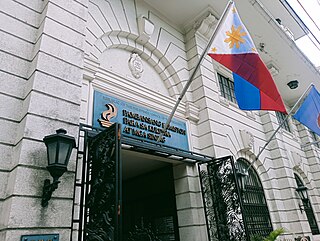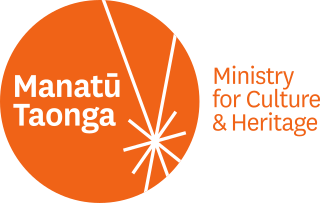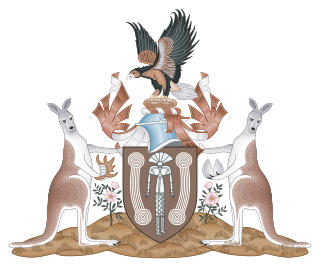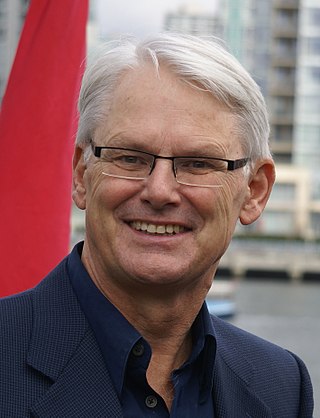The Department of Internal Affairs (DIA) is the public service department of New Zealand charged with issuing passports; administering applications for citizenship and lottery grants; enforcing censorship and gambling laws; registering births, deaths, marriages and civil unions; supplying support services to ministers; and advising the government on a range of relevant policies and issues.

The Department for Culture, Media and Sport (DCMS) is a ministerial department of the Government of the United Kingdom. It holds the responsibility for culture and sport in England, and some aspects of the media throughout the UK, such as broadcasting. Its main offices are at 100 Parliament Street, occupying part of the building known as Government Offices Great George Street.

The minister of Canadian heritage is the minister of the Crown who heads Canadian Heritage, the department of the Government of Canada responsible for culture, media, sports, and the arts.
The Department of Canadian Heritage, or simply Canadian Heritage, is the department of the Government of Canada that has roles and responsibilities related to initiatives that promote and support "Canadian identity and values, cultural development, and heritage."
A culture minister or a heritage minister is a common cabinet position in governments. The culture minister is typically responsible for cultural policy, which often includes arts policy and measures to protect the national heritage of a country and cultural expression of a country or subnational region. This responsibility usually manifests in the accompanying ministry, governing the following:

The National Commission for Culture and the Arts of the Philippines is the official government agency for culture in the Philippines. It is the overall policy making body, coordinating, and grants giving agency for the preservation, development and promotion of Philippine arts and culture; an executing agency for the policies it formulates; and task to administering the National Endowment Fund for Culture and the Arts (NEFCA) – fund exclusively for the implementation of culture and arts programs and projects.
The Cabinet of Malaysia is the executive branch of the Government of Malaysia. Led by the Prime Minister, the cabinet is a council of ministers who are accountable collectively to the Parliament. According to the Article 43 of the Federal Constitution, members of the Cabinet can only be selected from members of either houses of Parliament. Formally, the Yang di-Pertuan Agong appoints all Ministers on the advice of the Prime Minister. The constitution is amended by repealing the Clause (8) of Article 43, enabling a person who is a member of State Legislative Assembly to continue to serve even while serving as a minister or deputy minister in the cabinet. Ministers other than the Prime Minister shall hold office during the pleasure of the Yang di-Pertuan Agong, unless the appointment of any Minister shall have been revoked by the Yang di-Pertuan Agong on the advice of the Prime Minister but any Minister may resign from office. In practice, the Yang di-Pertuan Agong is obliged to follow the advice of the Prime Minister on the appointment and dismissal of ministers.
The First Peoples' Cultural Council (FPCC) is a First Nations governed Crown Corporation of the province of British Columbia, Canada. It is based in Brentwood Bay, British Columbia on Tsartlip First Nation. The organization was formerly known as the First Peoples' Heritage, Language and Culture Council, but shortened its name in 2012.
Arts South Australia was responsible for managing the South Australian Government's funding for the arts and cultural heritage from about 1996 until late 2018, when it was progressively dismantled, a process complete by early 2019. Most of its functions were taken over by the Department of the Premier and Cabinet (DPC) under Premier Steven Marshall, while some went to the Department for Education and others to the Department for Innovation and Skills.

The Ministry for Culture and Heritage is the department of the New Zealand Government responsible for supporting the arts, culture, built heritage, sport and recreation, and broadcasting sectors in New Zealand and advising government on such.
The Minister of Sport, Culture, Heritage and Tourism is the cabinet position in Manitoba that oversees the Department of Sport, Culture and Heritage. Since January 2023, the Minister has been Glen Simard.

Multiculturalism in Canada was officially adopted by the government during the 1970s and 1980s. The Canadian federal government has been described as the instigator of multiculturalism as an ideology because of its public emphasis on the social importance of immigration. The 1960s Royal Commission on Bilingualism and Biculturalism is often referred to as the origin of modern political awareness of multiculturalism, resulting in Canada being one of the most multicultural nations in the world. The official state policy of multiculturalism is often cited as one of Canada's significant accomplishments, and a key distinguishing element of Canadian identity and Canadian values.
Horst Adolph Louis Charles Schmid is a former provincial level politician and international trade businessman from Alberta, Canada. He served as a member of the Legislative Assembly of Alberta sitting with the governing Progressive Conservative party from 1971 to 1986. During his time in office he served numerous ministerial portfolio's in the Executive Council of Alberta.
The Ministry of Tourism, Culture and Sport, was created on January 18, 2010 when the Ministry of Culture and the Ministry of Tourism were combined under one ministry. Sport was added to the portfolio in 2011. It is responsible for the development of policies and programs and the operation of programs related to tourism, arts, cultural industries, heritage sectors and libraries, in Ontario. The Ministry works in partnership with its agencies, attractions, boards and commissions and the private sector to maximize the economic, cultural and social contributions of its agencies and attractions, while promoting the tourism industry and preserving Ontario's culture and heritage.
Manitoba Sport, Culture, Heritage and Tourism is the department of the Government of Manitoba responsible for managing government programs and services that support the sport, art, culture, and heritage of the province, through developing, supporting, promoting, and celebrating the identity and well-being of Manitoba and its communities.

The Minister for Arts, Culture and Heritage is a minister in the New Zealand Government with responsibility for arts, culture, heritage, and broadcasting, and is in charge of the Ministry for Culture and Heritage. The position was established in 1975 as Minister for the Arts.

The Northern Territory Minister for Arts and Culture is a Minister of the Crown in the Government of the Northern Territory, Australia. The minister administers their portfolio through the Department of Industry, Tourism and Trade.

Rajan Sawhney is a Canadian politician from the United Conservative Party in Alberta. She was elected in the 2019 Alberta general election to represent the electoral district of Calgary-North West in the 30th Alberta Legislature. On April 30, 2019, she was appointed to be the Minister of Community & Social Services in the Executive Council of Alberta. On July 8, 2021, she was shuffled into the Minister of Transportation.

The Campbell ministry was the combined Cabinet that governed British Columbia from June 5, 2001, to March 14, 2011. It was led by Gordon Campbell, the 34th premier of British Columbia, and consisted of members of the British Columbia Liberal Party.









